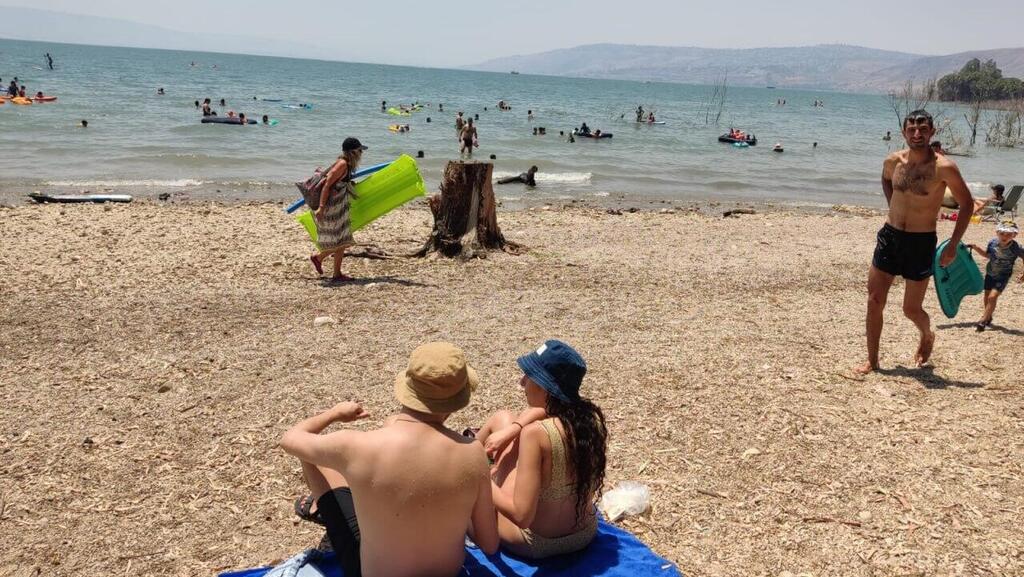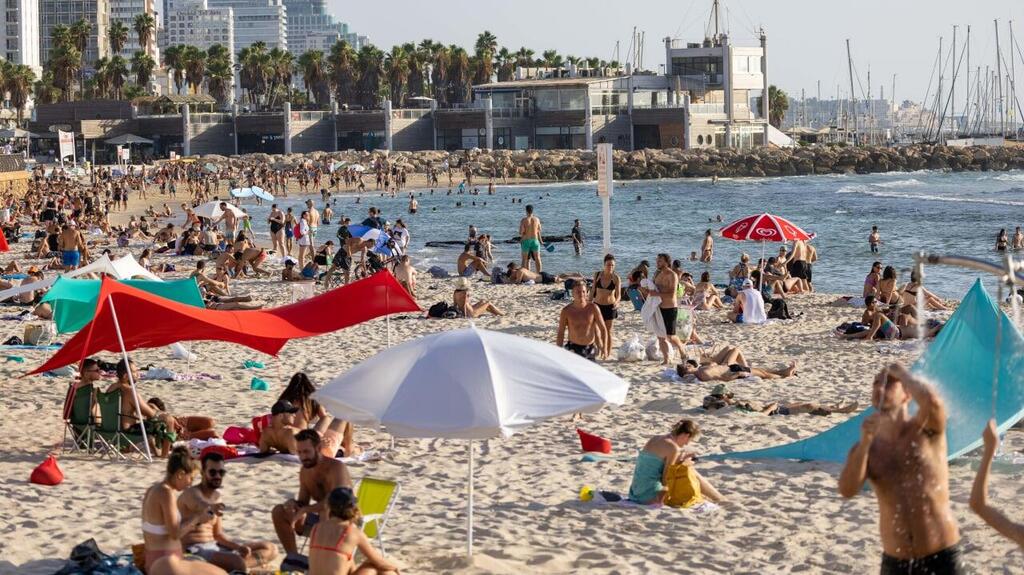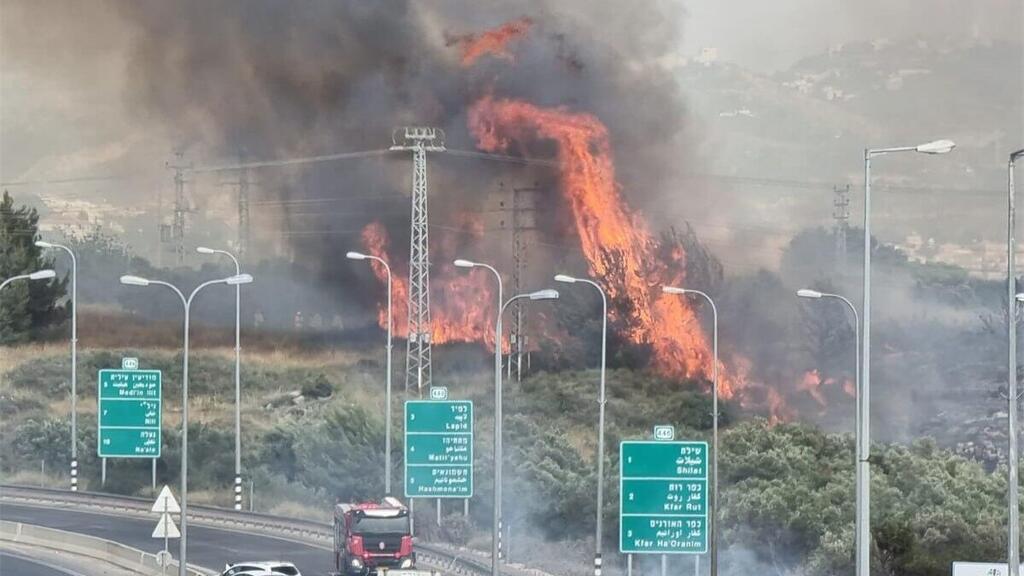Getting your Trinity Audio player ready...
An extended heatwave is expected to hit Israel beginning on Thursday, accompanied by high temperatures and a heavy, extreme heat load that will persist at least until the middle of next week. In light of the forecast, the Israeli Nature and Parks Authority will close many hiking trails throughout the country starting Wednesday until at least Sunday.
More stories:
On Friday, temperatures will rise to 46°C in the Jordan Valley and 35°C in the mountains. On the coast, temperatures will reach 32°C-33°C. The humidity will also be very high, making it feel even hotter. The Nature and Parks Authority announced that due to the expected heat load in the coming days, lighting fires will be completely prohibited in all nature reserves and national parks due to the risk of wildfires – from Wednesday until Sunday. The authority said in a statement that during the days of the heatwave it will be possible to visit sites where the duration of the hike is short, the route is shaded and there are places for refreshment and drinking water.
Dr. Dana Florentin, a family medicine specialist in the Dan District of Clalit health care fund, provides advice and tips on how to prepare for the heat, what to wear and what to pay attention to:
What is a heatwave, actually?
A heatwave is defined as three consecutive days in which the temperature is above 32°C or above 30°C combined with humidity of over 70%.
Can it be dangerous?
Yes. Our bodies are designed to function at a certain temperature (around 37°C), and any deviation can harm various systems, including the nervous system, cardiovascular system, internal organs and immune system. In fact, every system in the body can be affected. Our bodies have mechanisms that regulate internal temperature and ensure it remains within the desired range (the hypothalamus in the brain is the major controller of this) – but at extreme temperatures things can go awry, and the body doesn't always manage to maintain the desired temperature.
What can be done to prevent heat-related injuries?
During peak heat hours, it is advisable to stay in air-conditioned places such as shopping malls and air-conditioned cafes. To enhance the cooling effect at home, using fans is recommended. To maximize the cooling effect of air conditioning it is advisable to close the blinds and minimize the entry of warming sunlight.
Florentin adds that it is important to take cool showers and wear lightweight clothing made of thin fabric. Outdoor activities should be postponed to the evening hours. And if going out during the hot hours, it is advisable to wear a hat, sunglasses, lightweight clothing and sunscreen.
"Humidity causes us to sweat and lose a lot of fluids, so it is important to drink water (not sweetened beverages). It is recommended to drink eight to 10 cups of water per day, even if you are not thirsty. You can determine if you have drunk enough by the color of your urine: light urine is good; dark urine means you haven't had enough to drink. Drinking water will not necessarily prevent heatstroke, but it will reduce the risk of it occurring," she says.
What about physical activity?
Physical activity is always recommended, but during heatwaves, caution is needed. Exercise in an air-conditioned gym, and if exercising outdoors do it in the evening hours. It is important to drink two to four cups of cold water during the workout (in addition to the recommended daily intake) and consider reducing the intensity of the workout and being attentive to your body.
Very important: Do not stay in a car or in any other enclosed space for too long, and never leave children or pets alone in such places, not even for a minute.
What are the signs of heat-related illness?
Heat exhaustion, which is a moderate condition, can manifest in the following ways:
- Muscle aches, fatigue, weakness
- Headaches
- Nausea or vomiting
- Pale skin, dizziness, tendency to faint
- Excessive sweating, cool and moist skin
Heatstroke is a medical emergency that can be life-threatening. The signs include:
- Body temperature above 39.5°C
- Red, hot and dry skin (without sweating)
- Rapid heartbeat
- Extreme headache
- Confusion, disorientation, decreased level of consciousness
Dehydration occurs due to insufficient fluids in the body caused by inadequate drinking, excessive sweating, diarrhea or vomiting. The signs include:
- Thirst, dry mouth and stickiness
- Lack of sweating
- Dry skin
- Headaches and fatigue
- Rapid heartbeat
- Decreased urine output, with the urine being dark in color.
Who is at risk of heat-related illness?
Elderly individuals, infants, people with heart and blood vessel diseases, individuals who are overweight, people with acute illness or dehydration, and individuals taking certain medications that increase fluid loss.
What should you do if someone next to you is experiencing heat exhaustion or heatstroke?
First, you should cool them down: move them to a shaded area, preferably with air conditioning, pour cool water on them, and remove any hot clothing. You can also place ice packs on their armpits and groin area. Then, seek medical help immediately.
If there is suspicion of dehydration, it is recommended to provide them with water to drink. Do not give them acetaminophen or any other fever-reducing medication because it could worsen the condition in the case of heatstroke.
What should you eat and drink during hot days?
Mariana Orbach, the director of the Nutrition and Diet Unit in the Dan District of Clalit healthcare fund, believes it is important to consume light and cool foods and beverages that cool the body, such as cucumber, tomatoes and other vegetables. It is also recommended to consume refreshing and hydrating summer fruits, such as watermelon and melon. They are easy to digest and aid in body hydration, but they should not be consumed in excessive amounts due to their sugar content. It is also advisable to consume cool dairy products such as yogurt, cottage cheese and low-fat cheese.
She suggests avoiding spices that heat up the body, such as cinnamon, pepper and paprika. It is preferable to season food with refreshing and cooling herbs such as mint and spearmint. These can also be incorporated into beverages like tea or natural lemonade.
"It is important to consume fewer carbohydrates (e.g., potatoes) and legumes (e.g., lentils) that are heavy for digestion. Meat is also heavy for digestion, so it is advisable to minimize its consumption. For individuals who require additional calories or energy, such as those engaging in strenuous physical activity, it is better to consume good fats such as nuts, avocados and tahini as a source of energy," according to Orbach.
She concludes that it is preferable to avoid hot beverages and foods that raise body heat and cause sweating, such as hot coffee and hot soups, and instead increase the consumption of cold water. Lemon can be added to water with mint or lemon verbena, contributing to body cooling. Lemon juice with artificial sweeteners can also be consumed. Ice-cold cartons also help in body cooling and can be consumed. It is preferable to choose a product without added food coloring.




